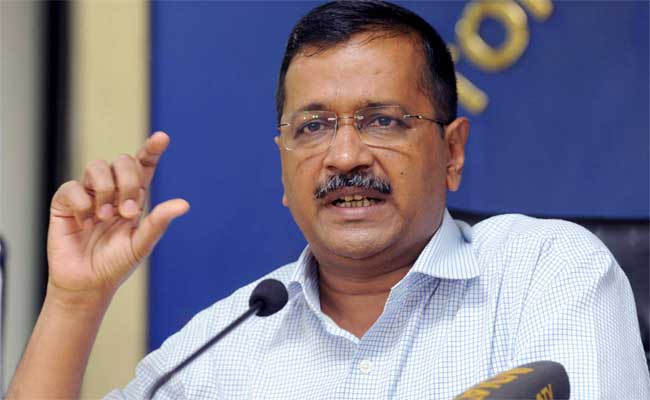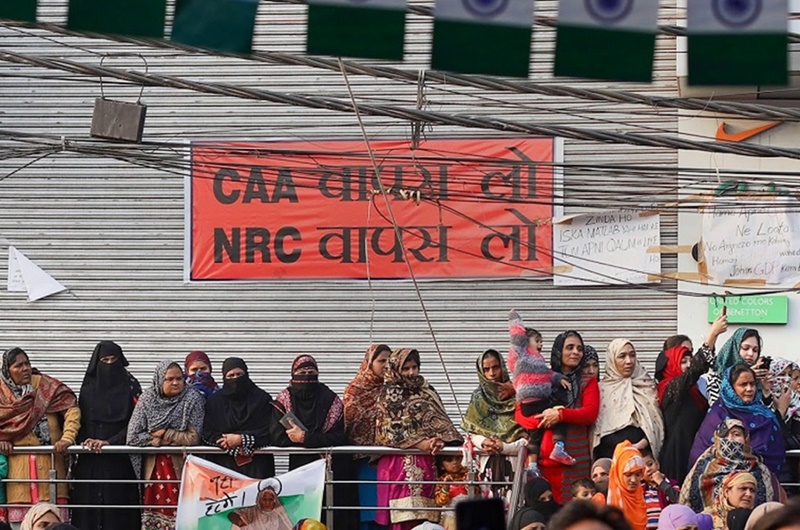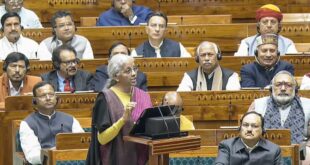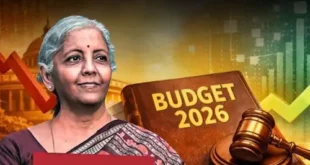Abdul hayee
Union Home Minister Amit Shah on Wednesday termed the February 8 assembly elections in Delhi a contest between two “ideologies” and said the poll results will be a shocker to everyone. “Delhi elections are not a contest between two parties. You have to choose between two ideologies – Rahul Baba, Kejriwal and the company which supports Shaheen Bagh or Modi who is safeguarding the country,” he said.
Although preference of Indian voters has changed from time to time since Independence, but they have remained more or less loyal to a party or an ‘ideology’ for a significant time span. However there has been a clear shift from this trend in recent years. Voters are doing a cost-benefit analysis of the available options.

As results vary for Lok Sabha and Assembly elections, they are voting differently for state and the national polls. In other words, voters are judging the situation by their intellect, and not going by emotion alone.
Delhi, which is going to vote on February 8, could prove to be a classic case as far as this new trend goes. A Lokniti-CSDS post-poll survey after the May 2019 Lok Sabha election revealed that out of 56.5 per cent voters who voted for the Bhartiya Janata Party (BJP) in the Lok Sabha, 24 per cent had the Aam Aadmi Party (AAP) on their mind for the Assembly election.

Another survey done by IANS Cvoter more than six months later, in mid-January this year, found though 59.7 per cent predicted AAP would win but 70.7 per cent felt Narendra Modi is the best suited to be the PM. Simply put, a significant portion of Delhi voters were acting as the ‘intelligent voter’. They feel that Narendra Modi as prime minister and Arvind Kejriwal as chief minister will serve their interest best.
This spelled bad news for the BJP, which now desperately needs to win the Delhi election to show the world that people are with them during the Citizenship Amendment Act (CAA)-National Register of Citizens (NRC) controversy. The only way it could be done is by converting the intelligent voter into an emotional one.
So, the Saffron party is playing all the available cards to change the situation, the most prominent being the Shaheen Bagh card. Without going into the details of their campaign over the last ten days (starting with the Desh ke gaddaron ko/ Goli maro… provocation), we may say that BJP has started an emotional bombardment involving nationalism and Hindutva to win back the shifting voters.

In general, until a few years ago, emotional attachment guided people to vote for the same party for both the Lok Sabha and Assembly elections. The voters of some states though were an exception. This trend has become the norm since 2018 as we saw it happening in Rajasthan, Madhya Pradesh and Chhatisgarh where Assembly and Lok Sabha elections were held within a period of 6 to 7 months.
The trend is continuing, and according to different surveys, the shifting vote could have reached a high of 30 per cent or more in Delhi. Here not only the BJP, but the Congress vote too is likely to shift towards the Aam Admi Party. As the Congress is almost marginalised this time, AAP could be set to cross the 50 per cent mark, if pre-poll surveys are to be believed. This would mean that it would win by a thumping majority
 Jubilee Post News & Views
Jubilee Post News & Views





